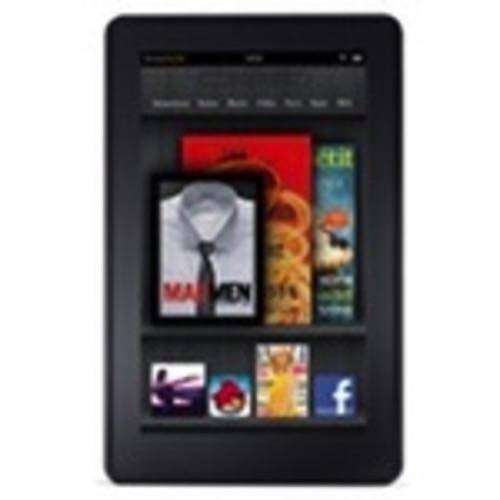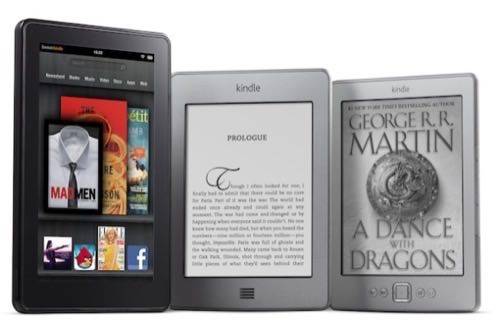The Kindle Fire just hit stores, but rumors from the supply chain indicate that two new models are already in production for next year. DigiTimes says Amazon will launch an 8.9-inch model by the end of Q2 2012 and is also developing a 10.1-inch tablet. Already, 22% of prospective tablet buyers want a Kindle Fire (65% want an iPad). With more choices, Amazon can meet more demand.

Amazon has ordered 5 million units of the current model to meet pre-orders. Will those people have buyers’ remorse when they hear about new models? Well, at the $200 price point, at least it won’t hurt as much as an iPad. Amazon found the consumer sweet spot with that price, even though they lose $2.70 on each one. In other words, the first shipment of Kindle Fires cost Amazon $13.5 million, and that’s if they sell them all. Why would they take that hit and still order two new versions? Because the Kindle Fire is a service, not a product.
The Kindle Fire Is a Store With a Screen
Amazon just wants to put a device in people’s hands as easily as possible, so they’ll buy videos and books (yes, and apps, too). It’s not rocket science; selling media has always been Amazon’s business. It’s just like console gaming. The Xbox cost Microsoft $500 million when it launched in 2001. The money is made on the $60 games printed on several cents of plastic. Subsidizing devices is a precarious path, but Amazon safely slid under the price point they needed to reach.
This isn’t just a blogger’s armchair analysis. Amazon wants to get that message across. CEO Jeff Bezos himself calls the Kindle Fire a “a fully integrated media service,” of which hardware is “only a piece.” Amazon’s PR machine says “Kindle Fire is a fully integrated, end-to-end service that gives customers access to over 18 million movies, TV shows, books, magazines, apps and games.” Buying a Kindle Fire isn’t buying a computer; it’s paying to access a handheld media store.
Yes, Amazon has an Android Appstore (don’t call it an App Store), but the Kindle Fire is not a productivity machine. Its app ecosystem is more like another media service. It’s fun for games, but you wouldn’t want to code in C++ on it.

Kindle Fire vs. iPad: Different Businesses
With new Kindle Fire models on the way so soon, Amazon is just trying to optimize shopping experiences. This is why comparisons with the iPad are off the mark; the iPad – so far – is just one thing, and it’s the thing itself that Apple wants to sell. Apple makes a handsome profit that way. By building a big, powerful tablet that supports a vast range of apps, Apple can sell an iPad to someone for any number of reasons. Media is only one.
Amazon has the best media store, though. Its music is cheaper than iTunes, its streaming video services are great, and its selection is generally bigger. The Kindle Fire is a physical extension of that service. Amazon will spend whatever it has to to improve that service, and unlike Apple, it will put different screen sizes in customers’ hands as quickly as it can. As we reported even as the Fire was announced, there were already later models in the works.
Are you getting a tablet this holiday season?










